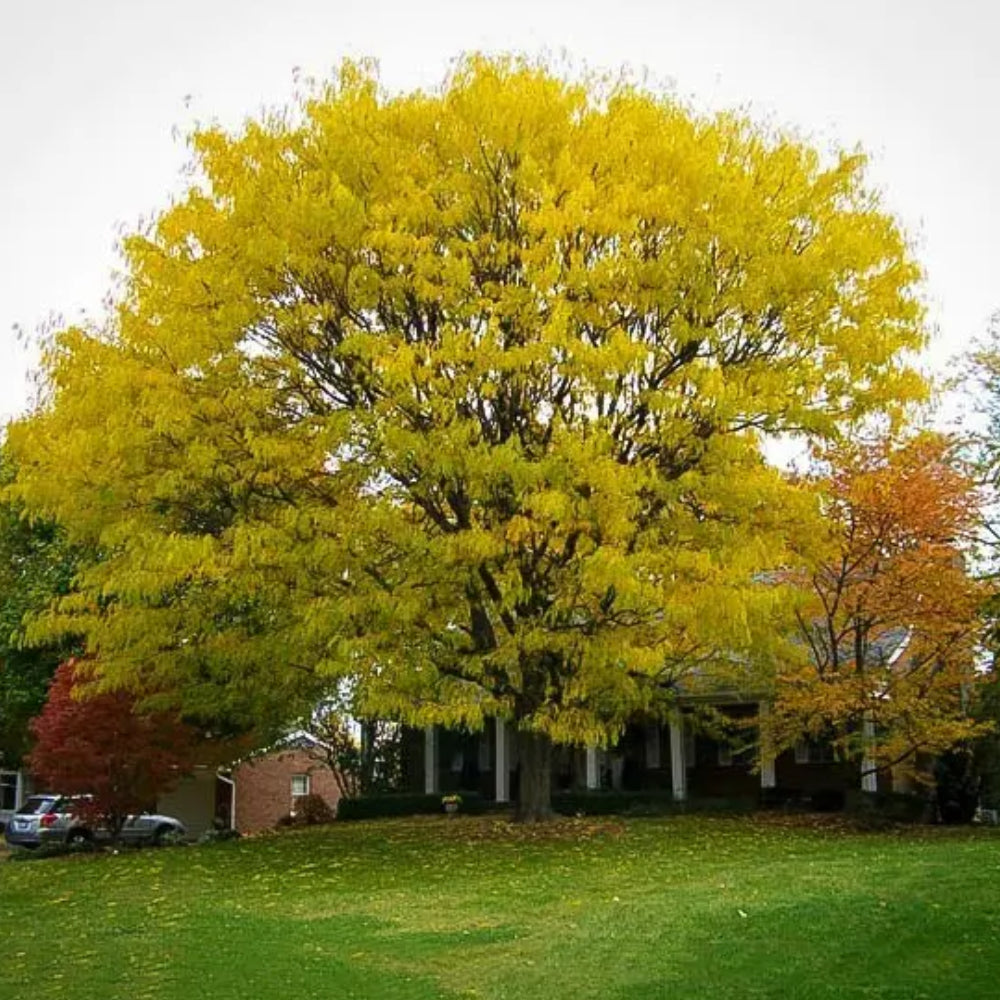A medium-sized shade tree with an excellent vase shape and finely-spaced upward branches. Although the species has thorns and large pods, this variety is thornless and typically won’t produce pods. The leaves are fernlike and composed of numerous leaflets, creating light dappled shade and making fall clean-up easy. The green rounded leaflets have serrated edges and will turn yellow in autumn. Flowers are yellow and insignificant. Very tolerant of dry and compacted soils as well as periods of drought and excess moisture.
| Plant Type |
Native, Trees |
| Hardiness Zone |
4-9 |
| Exposure |
Full Sun, Partial Shade |
| Season of Interest |
Spring, Summer, Fall |
| Height | 45' - 55' (ft), 55' - 75' (ft) |
| Spread | 25' - 35' (ft), 35' - 45' (ft) |
| Water Needs |
Low, Average |
| Maintenance |
Low |
| Soil Type |
Chalk, Clay, Loam, Sand |
| Soil PH |
Acid, Alkaline |
| Soil Drainage |
Moist but Well-Drained, Well-Drained |
| Characteristics |
Fragrant |
| Tolerance |
Drought, Salt, Wet Soil |
| Attracts |
Pollinators, Wildlife |
| Garden Uses |
Beds and Borders |
Shademaster Honeylocust | Gleditsia triacanthos var. inermis 'Shademaster' || A medium-sized shade tree with an excellent vase shape and finely-spaced upward branches. Although the species has thorns and large pods, this variety is thornless and typically won’t produce pods. The leaves are fernlike and composed of numerous leaflets, creating light dappled shade and making fall clean-up easy. The green rounded leaflets have serrated edges and will turn yellow in autumn. Flowers are yellow and insignificant. Very tolerant of dry and compacted soils as well as periods of drought and excess moisture.
Native,
Full Sun, Partial Shade,
Spring, Summer, Fall,
Low Water Needs, Average Water Needs, Low Maintenance, Moist but Well-Drained, Well-Drained,
Fragrant,
Drought Tolerant, Salt Tolerant, Wet Soil Tolerant,
Attracts Pollinators, Attracts Wildlife, Beds and Borders


